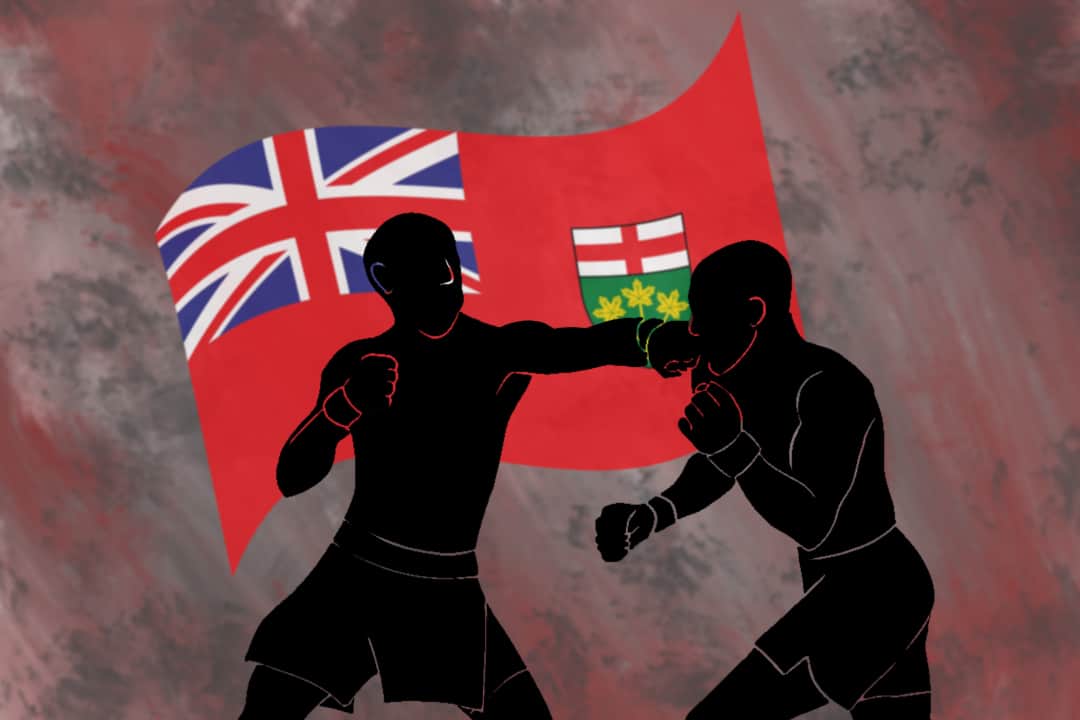Professional mixed martial arts (MMA) became legal in Ontario in 2010, marking a monumental moment for combat sports fans. This allowed for the province’s first Ultimate Fighting Championship (UFC) event, UFC 129, to be held in Toronto on April 30, 2011.
Since then, the UFC has returned to Ontario for nine events — seven in Toronto and two in Ottawa. Despite efforts to increase MMA’s popularity, existing legislative frameworks for combat sports in Ontario have been limited, restricting amateur MMA competitions and granting provincial sports organizations (PSO) a monopoly over amateur combat sports.
The Combative Sports Act
In 2019, the Ontario provincial government passed the Combative Sports Act (CSA) into law, overhauling the regulations relating to combat sports. The law sought to establish a new framework that would break the monopoly PSOs currently hold on hosting combat sports events, allowing anyone to apply for a permit to hold an amateur event.
Currently, the list of amateur combative sports that are legal as long as a PSO regulates them includes boxing, grappling, kickboxing, karate, pankration, taekwondo, wrestling, jiu-jitsu, kudo, muay thai, and wushu. Amateur MMA is currently illegal. Yet, that appears set to change.
In 2023, the CSA has yet to come into force. However, the establishment of the Combat Sports Advisory Council is a step in the right direction. The Council will provide Ontario Minister of Tourism, Culture and Sport Neil Lumsden with advice about creating updated regulations for combative sports. In a media scrum in the lead-up to UFC 297, Lumsden and Ned Kuruc, the chair of the advisory council, detailed their plans moving forward.
The Council’s goals
Refining combat sports at all levels and developing MMA in Ontario from the ground up are a focus of the Council. It has begun with creating ways to develop amateur MMA, something “that’ll happen very very shortly,” Kuruc explained.
“Creating a culture for smaller regional shows to flourish” is essential for the growth of MMA, according to Kuruc. Creating a viable environment for smaller regional shows to operate means making licences more affordable for smaller events.
Lumsden added that the future of the development of MMA depends on whether young people get involved. Yet, Lumsden explained “young people will get involved when parents and family are comfortable that there’s safety in sport.” The perception of safety, he said, is key.
The Council is also seeking out established figures within the MMA community to help support its goal of growing the sport.
One bite at a time
The CSA details the defining characteristics of combat sports. However, its regulations paint a broad picture of what might be allowed in combat sports moving forward. For example, it includes anything in which contestants “strike their opponents using their hands, fists, feet, or any other body part or any combination of them;” “use throwing, grappling, or submission techniques;” and “engage in any other prescribed technique.” These wide-ranging requirements could define a slew of sports as combat sports that are not considered as such currently.
When asked whether something like Powerslap — a slap-fighting promotion owned by UFC CEO Dana White that has come under scrutiny for safety concerns — would be permitted under these regulations, Kuruc told The Varsity, “I don’t see how [it] wouldn’t, [it’s] just not on our agenda exactly right at this moment.”
“You eat an apple one bite at a time,” Lumsden added. The Council’s focus remains on refining already established combat sports. Furthermore, Lumsden has the discretion of allowing combat sports contests that have deviations from the rules that the Council publishes and even allows for sports with unique rules.
Next steps
“First and foremost is amateur MMA,” Kuruc said when asked about the Council’s next steps. “That’s something on our desk every day, we’re almost there with the rule sets and all that, you will see that in the future,” he added.
Fan reception around UFC 297 in Toronto this past week showcased the demand for MMA in Ontario. “We want [the UFC] to come back and feel free to come back to Ontario to host not just one, not just two, but more events,” Lumsden said.
The Council is looking to get the CSA formally into force by January 2025.



No comments to display.